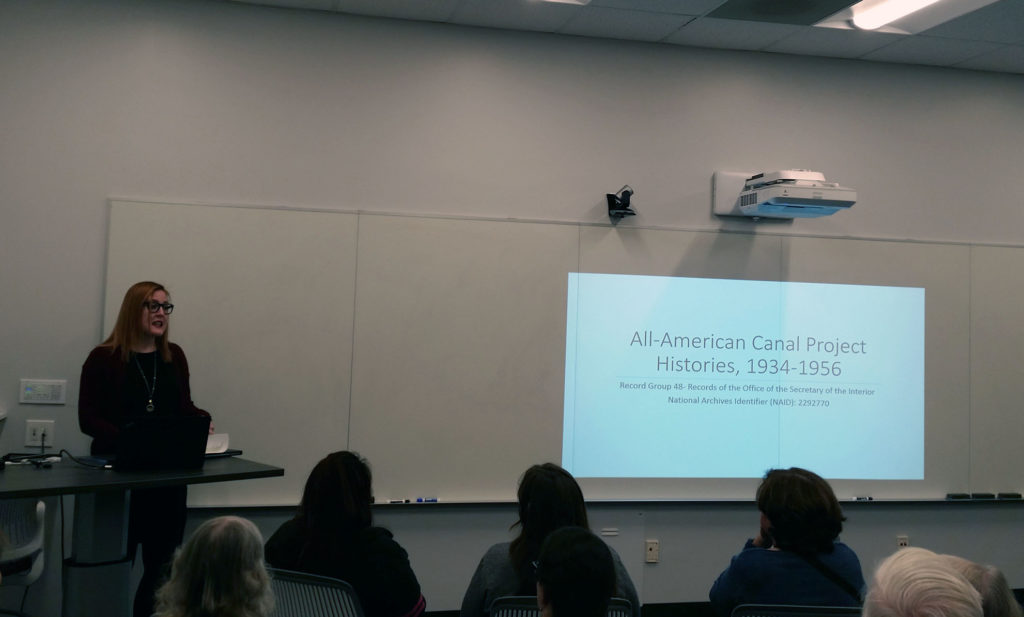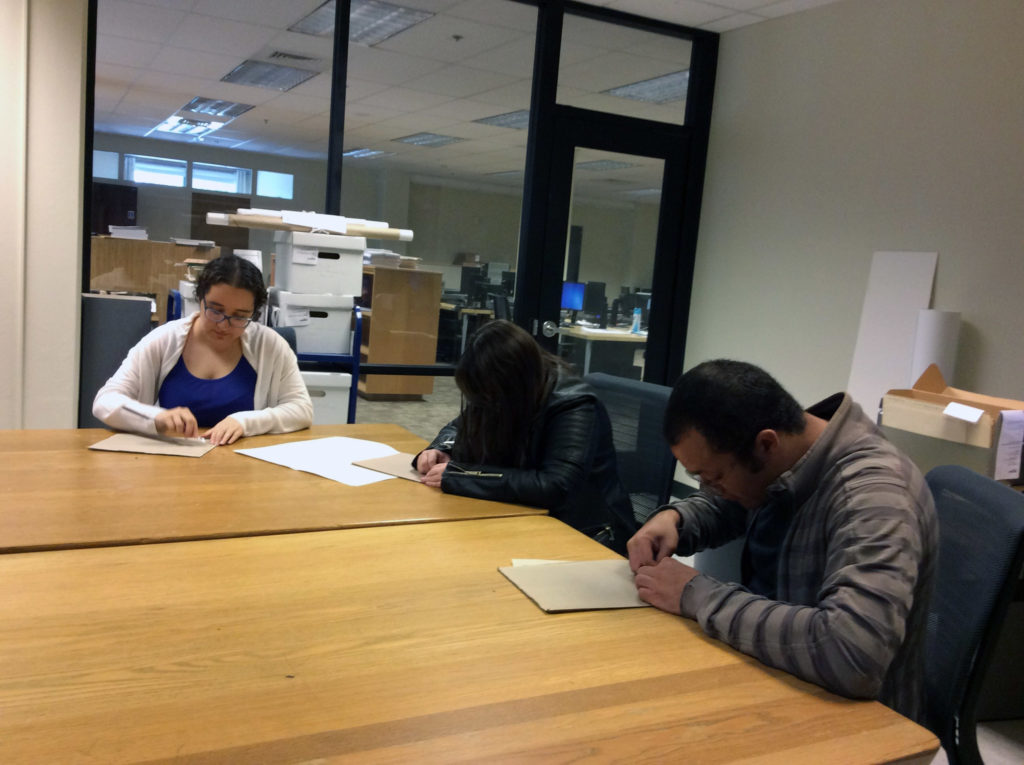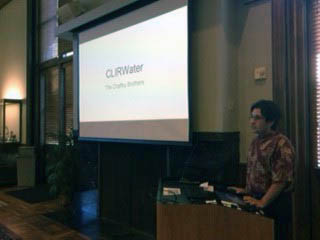The Claremont Colleges Library’s Claremont Center for Engagement with Primary Sources (CCEPS) provided the formal infrastructure for the Claremont digitization and metadata team’s work experience for the Council on Library and Information Resources (CLIR) grant-funded project, “Digitizing Southern California Water Resources.” Claremont CCEPS fellows scanned archival materials and created descriptive metadata, and they also incorporated aspects of the CCEPS program in their daily project work such as writing weekly blog posts and pass downs, and making culminating presentations during which each student talked about their experience and demonstrated importance of primary source materials to their own course work and research projects. The ultimate goal of the CLIR CCEPS fellowships was to provide students with an applied learning opportunity that would expand research skills and provide opportunities to add discrete project experience to their resumes, and build contacts.

Since 2017, the Fellows scanned, photographed, and converted analog audio cassette tapes, and created metadata, for a selection of archival water collections from The Claremont Colleges Library Special Collections, as well as those of the Ontario City Library, the Upland Public Library, the A.K. Smiley Public Library in Redlands, and the National Archives in Riverside. Fellows were trained to handle historical documents, utilized an array of scanners and conversion software, created a variety of file types, described the digital objects using Dublin Core metadata schema, and uploaded their work into a digital asset management system for discovery by researchers worldwide.
Weekly Pass Down

As part of the CLIR CCEPS fellowship, students filled out a sheet called the Weekly Pass Down in order to share what they had been working on with the Digital Project Manager. The sheet is exchanged through email on a weekly basis. There were 4 sections to the Weekly Pass Down:
- Accomplishments
- Questions or issues encountered
- A short reflection on the week
- Digital Project Manager feedback
Weekly Pass Down template with sample reflective questions
“Out of the Box” Blog
The CCEPS blog “Out of the Box” provided the Fellows an opportunity to share their experiences working on the “Digitizing Southern California Water Resources” project with others. Each week, students posted a blog entry where they typically highlighted something of interest to them in their own words. The topics ranged from sharing a historical event that was discovered in the archival materials, to technical problems with the hardware or software. Entries written by the CLIR CCEPS Fellows can be found by searching the blog for the tags #CLIRWater and CLIR CCEPS.
Culminating Presentations

At the end of the semester, the Fellows gave a culminating presentation discussing their experiences with the fellowship to library staff, project partners, faculty, and their invited guests. This was their opportunity to share what they learned, as well as any positive and/or challenging aspects of the fellowship.
CLIR CCEPS Fellows
The 19 CLIR CCEPS Fellows came from five of the seven schools that comprise The Claremont Colleges: Claremont Graduate University, Claremont McKenna College, Pitzer College, Pomona College, and Scripps College. While some of the students began their fellowships with undeclared majors, the undergraduate and graduate students’ areas of study included Cultural Studies; Education; English; Financial Engineering; History, History and Archival Studies; International and Intercultural Studies; International Political Economy; Political Science; Politics; and Public Health.